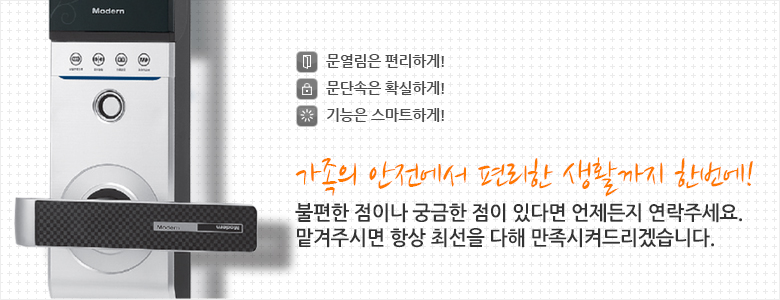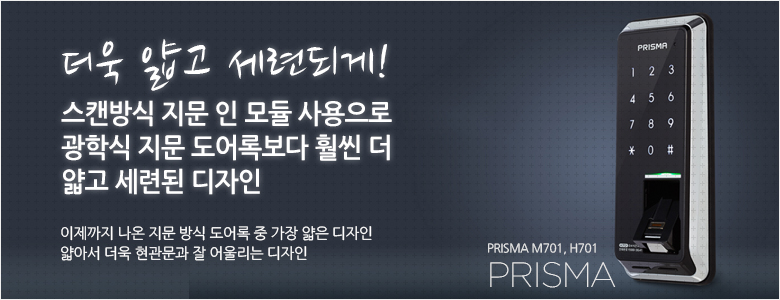Are How To Get Diagnosed With ADHD In Adults As Important As Everyone …
페이지 정보
작성자 Dorthea 작성일25-02-22 10:24 조회4회 댓글0건본문
연락처 :
주소 :
희망 시공일 :
 how do you get diagnosed with adhd in adults to Get Diagnosed With ADHD in Adults
how do you get diagnosed with adhd in adults to Get Diagnosed With ADHD in Adults
Articles can be a powerful tool to build connections with your audience, increase traffic to your site and help convert more customers. They can also help establish your expertise in the industry or in a particular niche.
Many adults don't get a diagnosis of ADHD until they reach adulthood, and it can cause problems at work and school. It is essential to ask your family physician for the referral to a mental health professional.
Book an appointment with a mental health professional
The first step towards an ADHD diagnosis is to have an evaluation by a mental health professional who has experience working with adults suffering from the disorder. This could be a psychologist, psychiatrist or advanced practice registered nurses (APRNs) with training in adhd diagnosis and therapy testing. The professional will evaluate your symptoms, your background and the impact on your daily life. They will also review the history of your family as well as your personal and psychiatric history to ensure that the symptoms of ADHD do not come from an illness that is medical.
This will include a thorough analysis of your symptoms and how they impact your daily functioning, such as at work, school, or in relationships. You must be honest with the evaluator, even when you find your symptoms uncomfortable or frustrating. ADHD can be treated, and the right treatment can allow you to live a fulfilling life, despite its difficulties.
An evaluator is likely to use an assessment scale for behavior to assess your symptoms. You might be asked to fill out questionnaires by yourself or with your family member or a friend. These questionnaires must be completed honestly, as the evaluator is looking for specific ADHD symptoms. It is possible that you will be required where to go for adhd diagnosis take a cognitive test or to take a physical exam, as underlying conditions like seizure disorders or thyroid disorders can sometimes cause symptoms that are similar to the symptoms of ADHD.
You could be referred to an ADHD specialist by your family doctor or you may decide to consult a private psychiatrist or a psychologist who is specialized in adult ADHD. Priority hospitals and wellness centres, for instance, offer private assessments. They can also schedule appointments with therapists who are experienced in identifying adult adhd diagnosis as an adult.
Getting diagnosed with ADHD can have a profound impact on your life particularly for adults who didn't receive a diagnosis in their childhood or believed that their symptoms were attributed to other causes. Many people say that their lives changed in a positive direction after receiving their diagnosis whether it was getting an opportunity to work or enhancing their relationship because they understand why they struggled and faced difficulties in the past.
Talk to Your Family
For adults with ADHD, a diagnosis could be life-changing. It can help adults with ADHD get the treatment they require to manage their symptoms and live a more productive life. A diagnosis can be difficult to accept by family members. It can also be difficult for them to see their loved ones struggle. This is especially relevant for parents whose children are diagnosed with ADHD.
You will be able to better understand the challenges faced by those living in this condition if you know more about it. This will allow you talk to your loved ones. Talking with your family during an open period of time can help them listen to your concerns.
You might want to ask someone you suspect has ADHD to speak to an expert in mental health who has been trained to treat this disorder. This can be easier than you think, [empty] since therapists are specially trained to assess ADHD symptoms in adults. You can also utilize an online platform such as Talkspace to connect with a professional who can guide you through the process of obtaining an diagnosis.
When you've booked an appointment, the specialist will ask you about your symptoms as well as those of your parents, siblings, and other family members. The doctor will then conduct a full assessment which usually involves an interview that is structured or a questionnaire. You'll usually be asked to bring your partner or family member with you, as they can offer more information about your symptoms.
While everyone struggles with staying on track or keeping up on commitments from time time, if you're having constant issues that affect your daily life and have been present since childhood, you could have ADHD. You'll need to prove the symptoms have been present for at least seven consecutive years in order to be diagnosed.
Matlen was relieved to get her ADHD diagnosis because it gave her a concrete reason for some of her difficulties. It was, however, a little disconcerting to realize that she could have had the benefit of guidance and support in the past.
Schedule a Screening Exam
A professional can help you determine whether you have ADHD. If you're a teen, your school counselor or guidance specialist might refer you to an evaluation who is specialized in ADHD. If you are an adult, a psychiatrist, psychologist or clinical social worker might be your first choice for an assessment. Find a mental health professional who is knowledgeable about ADHD and who accepts your insurance. Ask your family members, friends, and other trusted professionals for recommendations. Online research can help you find out more about the qualifications and experience of professionals.
The first interview is the most crucial step in conducting an evaluation of ADHD. The examiner will ask you questions about your symptoms and how they impact you and your relationships. They will also inquire about what the root of the problem is. They will also examine your family history to see if you have an ancestry of ADHD in your family. Additionally, they will follow the guidelines for clinical evaluations set out by the American Psychiatric Association in the Diagnostic and Statistical Manual of Mental Disorders, Fifth Edition (DSM-5).
Some evaluators will use questionnaires to assess symptoms and determine whether there are any other conditions that could be causing difficulties. This could include learning disabilities, and other mental disorders, as well being medical conditions such as seizures and thyroid disease.
A doctor is likely to interview you along with someone else who knows you very well, such parents, spouses or sibling, a coworker, or a teacher for adults, or a nanny, coach or coach for children. These interviews can give you important insights into your behavior that you might not have observed on your own. Perhaps you are embarrassed to share with others. For example you might not remember appointments or have trouble keeping them.
Based on the symptoms you are experiencing the evaluator could recommend cognitive testing to see the way your brain works and how it processes information. They might also perform an examination to rule out other medical reasons for your problems like thyroid disease or seizures. Your evaluator will decide if ADHD is present and recommend an appropriate treatment program. You may be prescribed a medication or recommended for a different type of therapy depending on your requirements.
Find a diagnosis
Everyone is prone to having difficulty paying attention or controlling their impulsive behavior every once in the course of time however, ADHD is more than just occasional issues. If the symptoms of a person affect their daily activities, they need to be evaluated for an diagnosis. ADHD can cause problems in school, at work and in relationships if it is not addressed. Symptoms of the disorder are usually not noticed in children, and many people who suffer from it do not get a diagnosis until they reach adulthood.
A mental health professional may use questionnaires or ratings scales to help diagnose ADHD. They will also want to know about a person's medical history as well as any family history of the disorder. It is essential to rule out any other disorders which can mimic the symptoms of ADHD. These include thyroid or depression.
A psychologist or psychiatrist is able to diagnose the patient by speaking with them as well as their parents and their teachers regarding their current and past issues. They will inquire about when the issues started and how often they occur. They may also discuss with friends and co-workers about the way that the behavior affects them.
Doctors will use the information they have to decide if a person has the inattentive or hyperactive/impulsive type of ADHD. A person with the inattentive form of ADHD is typically in a state of confusion and lacks organization, has trouble finishing tasks and frequently loses things. Someone with the hyperactive/impulsive type is restless and fidgety, can't wait their turn in conversations or [empty] games, interrupts others and takes over other people's things. People with both types of ADHD are diagnosed as having mixed ADHD.
If a doctor suspects that the patient suffers from ADHD or other disorders, they will create a treatment plan which may include medications. Treatment options can include psychotherapy as well as other therapies for behavior. People with the disorder may also require to alter their diet or sleep habits to help manage their symptoms.
Some people can be upset when they are diagnosed with ADHD as an adult. Some people may feel that they have wasted years in their lives, battling at work or school, and having their symptoms not understood. A correct diagnosis can lead to a life of happiness and fulfillment.
주소 :
희망 시공일 :
 how do you get diagnosed with adhd in adults to Get Diagnosed With ADHD in Adults
how do you get diagnosed with adhd in adults to Get Diagnosed With ADHD in AdultsArticles can be a powerful tool to build connections with your audience, increase traffic to your site and help convert more customers. They can also help establish your expertise in the industry or in a particular niche.
Many adults don't get a diagnosis of ADHD until they reach adulthood, and it can cause problems at work and school. It is essential to ask your family physician for the referral to a mental health professional.
Book an appointment with a mental health professional
The first step towards an ADHD diagnosis is to have an evaluation by a mental health professional who has experience working with adults suffering from the disorder. This could be a psychologist, psychiatrist or advanced practice registered nurses (APRNs) with training in adhd diagnosis and therapy testing. The professional will evaluate your symptoms, your background and the impact on your daily life. They will also review the history of your family as well as your personal and psychiatric history to ensure that the symptoms of ADHD do not come from an illness that is medical.
This will include a thorough analysis of your symptoms and how they impact your daily functioning, such as at work, school, or in relationships. You must be honest with the evaluator, even when you find your symptoms uncomfortable or frustrating. ADHD can be treated, and the right treatment can allow you to live a fulfilling life, despite its difficulties.
An evaluator is likely to use an assessment scale for behavior to assess your symptoms. You might be asked to fill out questionnaires by yourself or with your family member or a friend. These questionnaires must be completed honestly, as the evaluator is looking for specific ADHD symptoms. It is possible that you will be required where to go for adhd diagnosis take a cognitive test or to take a physical exam, as underlying conditions like seizure disorders or thyroid disorders can sometimes cause symptoms that are similar to the symptoms of ADHD.
You could be referred to an ADHD specialist by your family doctor or you may decide to consult a private psychiatrist or a psychologist who is specialized in adult ADHD. Priority hospitals and wellness centres, for instance, offer private assessments. They can also schedule appointments with therapists who are experienced in identifying adult adhd diagnosis as an adult.
Getting diagnosed with ADHD can have a profound impact on your life particularly for adults who didn't receive a diagnosis in their childhood or believed that their symptoms were attributed to other causes. Many people say that their lives changed in a positive direction after receiving their diagnosis whether it was getting an opportunity to work or enhancing their relationship because they understand why they struggled and faced difficulties in the past.
Talk to Your Family
For adults with ADHD, a diagnosis could be life-changing. It can help adults with ADHD get the treatment they require to manage their symptoms and live a more productive life. A diagnosis can be difficult to accept by family members. It can also be difficult for them to see their loved ones struggle. This is especially relevant for parents whose children are diagnosed with ADHD.
You will be able to better understand the challenges faced by those living in this condition if you know more about it. This will allow you talk to your loved ones. Talking with your family during an open period of time can help them listen to your concerns.
You might want to ask someone you suspect has ADHD to speak to an expert in mental health who has been trained to treat this disorder. This can be easier than you think, [empty] since therapists are specially trained to assess ADHD symptoms in adults. You can also utilize an online platform such as Talkspace to connect with a professional who can guide you through the process of obtaining an diagnosis.
When you've booked an appointment, the specialist will ask you about your symptoms as well as those of your parents, siblings, and other family members. The doctor will then conduct a full assessment which usually involves an interview that is structured or a questionnaire. You'll usually be asked to bring your partner or family member with you, as they can offer more information about your symptoms.
While everyone struggles with staying on track or keeping up on commitments from time time, if you're having constant issues that affect your daily life and have been present since childhood, you could have ADHD. You'll need to prove the symptoms have been present for at least seven consecutive years in order to be diagnosed.
Matlen was relieved to get her ADHD diagnosis because it gave her a concrete reason for some of her difficulties. It was, however, a little disconcerting to realize that she could have had the benefit of guidance and support in the past.
Schedule a Screening Exam
A professional can help you determine whether you have ADHD. If you're a teen, your school counselor or guidance specialist might refer you to an evaluation who is specialized in ADHD. If you are an adult, a psychiatrist, psychologist or clinical social worker might be your first choice for an assessment. Find a mental health professional who is knowledgeable about ADHD and who accepts your insurance. Ask your family members, friends, and other trusted professionals for recommendations. Online research can help you find out more about the qualifications and experience of professionals.
The first interview is the most crucial step in conducting an evaluation of ADHD. The examiner will ask you questions about your symptoms and how they impact you and your relationships. They will also inquire about what the root of the problem is. They will also examine your family history to see if you have an ancestry of ADHD in your family. Additionally, they will follow the guidelines for clinical evaluations set out by the American Psychiatric Association in the Diagnostic and Statistical Manual of Mental Disorders, Fifth Edition (DSM-5).
Some evaluators will use questionnaires to assess symptoms and determine whether there are any other conditions that could be causing difficulties. This could include learning disabilities, and other mental disorders, as well being medical conditions such as seizures and thyroid disease.
A doctor is likely to interview you along with someone else who knows you very well, such parents, spouses or sibling, a coworker, or a teacher for adults, or a nanny, coach or coach for children. These interviews can give you important insights into your behavior that you might not have observed on your own. Perhaps you are embarrassed to share with others. For example you might not remember appointments or have trouble keeping them.
Based on the symptoms you are experiencing the evaluator could recommend cognitive testing to see the way your brain works and how it processes information. They might also perform an examination to rule out other medical reasons for your problems like thyroid disease or seizures. Your evaluator will decide if ADHD is present and recommend an appropriate treatment program. You may be prescribed a medication or recommended for a different type of therapy depending on your requirements.
Find a diagnosis
Everyone is prone to having difficulty paying attention or controlling their impulsive behavior every once in the course of time however, ADHD is more than just occasional issues. If the symptoms of a person affect their daily activities, they need to be evaluated for an diagnosis. ADHD can cause problems in school, at work and in relationships if it is not addressed. Symptoms of the disorder are usually not noticed in children, and many people who suffer from it do not get a diagnosis until they reach adulthood.
A mental health professional may use questionnaires or ratings scales to help diagnose ADHD. They will also want to know about a person's medical history as well as any family history of the disorder. It is essential to rule out any other disorders which can mimic the symptoms of ADHD. These include thyroid or depression.
A psychologist or psychiatrist is able to diagnose the patient by speaking with them as well as their parents and their teachers regarding their current and past issues. They will inquire about when the issues started and how often they occur. They may also discuss with friends and co-workers about the way that the behavior affects them.
Doctors will use the information they have to decide if a person has the inattentive or hyperactive/impulsive type of ADHD. A person with the inattentive form of ADHD is typically in a state of confusion and lacks organization, has trouble finishing tasks and frequently loses things. Someone with the hyperactive/impulsive type is restless and fidgety, can't wait their turn in conversations or [empty] games, interrupts others and takes over other people's things. People with both types of ADHD are diagnosed as having mixed ADHD.
If a doctor suspects that the patient suffers from ADHD or other disorders, they will create a treatment plan which may include medications. Treatment options can include psychotherapy as well as other therapies for behavior. People with the disorder may also require to alter their diet or sleep habits to help manage their symptoms.
Some people can be upset when they are diagnosed with ADHD as an adult. Some people may feel that they have wasted years in their lives, battling at work or school, and having their symptoms not understood. A correct diagnosis can lead to a life of happiness and fulfillment.
댓글목록
등록된 댓글이 없습니다.





